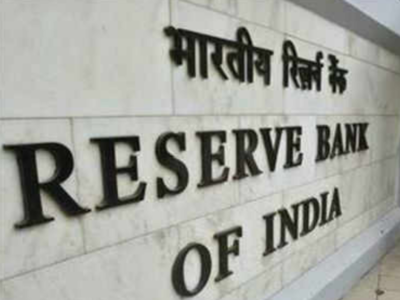- News
- Business News
- India Business News
- IBA, power sector spar on RBI norms for stressed assets
Trending
This story is from April 22, 2019
IBA, power sector spar on RBI norms for stressed assets
The power sector and Indian Banks Association have locked horns over threshold for approving resolution plan for stressed assets in tune with the Indian Bankruptcy Code in the revised circular on stressed assets being redrawn by the RBI after the Supreme Court on April 2 struck down its earlier circular.

(Representative image)
NEW DELHI: The power sector and Indian Banks Association have locked horns over threshold for approving resolution plan for stressed assets in tune with the Indian Bankruptcy Code in the revised circular on stressed assets being redrawn by the RBI after the Supreme Court on April 2 struck down its earlier circular.
In their recommendations to the RBI, the IBA has recommended that lenders should agree on 90% of the value of any resolution plan against 66% sought by the industry in line with IBC.
IBA has suggested that meeting should be called to seek approval of the resolution plan by 90% of all lenders. The power sector is opposed to this move since it feels that agreement among 90% of lenders is highly improbable and would result in a large number of stressed assets getting referred to NCLT under IBC, eroding value for the stakeholders.
The IBA has recommended that resolution plans be finalized after stock audits, forensic audits, creation of security interest, completion of documentation within 180 days from the reference date. It has also suggested that additional 60 days may be considered for approval.
Industry representatives say power and infrastructure sectors are heavily regulated and regulatory resolutions are inordinately delayed for one to three years. Besides, the government counter-parties are unable to provide even contractually permissible relief while resolution of regulatory matters are pending.
In their recommendations to the RBI, the IBA has recommended that lenders should agree on 90% of the value of any resolution plan against 66% sought by the industry in line with IBC.
IBA has suggested that meeting should be called to seek approval of the resolution plan by 90% of all lenders. The power sector is opposed to this move since it feels that agreement among 90% of lenders is highly improbable and would result in a large number of stressed assets getting referred to NCLT under IBC, eroding value for the stakeholders.
The IBA has recommended that resolution plans be finalized after stock audits, forensic audits, creation of security interest, completion of documentation within 180 days from the reference date. It has also suggested that additional 60 days may be considered for approval.
In contrast, the power sector is demanding at least of 360 days for preparation, approval and implementation of the resolution plan. This is because the power and infrastructure projects involve large lending consortia, involving number of banks and financial institutions. Missing the 240-day timeline will lead to large number of stressed assets getting referred to NCLT under IBC, again eroding value for the stakeholders.
Industry representatives say power and infrastructure sectors are heavily regulated and regulatory resolutions are inordinately delayed for one to three years. Besides, the government counter-parties are unable to provide even contractually permissible relief while resolution of regulatory matters are pending.
End of Article
FOLLOW US ON SOCIAL MEDIA















